Big Brother Big Sister program alumni represent one of the most powerful testimonies to the transformative impact of youth mentorship—individuals whose lives were shaped by meaningful relationships with caring adults who believed in their potential. With over 65,000 children currently served and decades of alumni spanning generations, Big Brothers Big Sisters of America (BBBS) has created a network of individuals who embody the program’s mission of creating life-changing mentoring relationships.
Recent groundbreaking research launched by BBBS in January 2025, conducted alongside researchers from Harvard University and the U.S. Department of Treasury, provides unprecedented evidence of the long-term impact of mentorship. This 30-year longitudinal study reveals greater enrollment in higher education, increased salaries, reduced dependency on social services, and improved behavioral outcomes for mentored youth—demonstrating that the relationships formed through BBBS create lasting change extending decades beyond the initial match.
Yet many BBBS agencies and community organizations struggle to systematically recognize, engage, and celebrate their alumni networks. Former “Littles” who have become successful professionals, community leaders, and mentors themselves often remain disconnected from programs that shaped their trajectories. Meanwhile, volunteer “Bigs” who dedicated years to mentoring deserve lasting recognition for their service and impact on young lives.
This comprehensive guide explores evidence-based strategies for developing robust BBBS alumni recognition programs, tracking long-term mentorship outcomes, engaging former participants, and creating lasting celebration of these transformative relationships through both traditional approaches and innovative digital recognition platforms.
Effective alumni engagement extends beyond occasional reunions or fundraising appeals—it creates systematic programs that honor the mentoring relationships at the heart of BBBS, validate the life-changing impact of quality mentorship, and demonstrate that agencies value both the youth they serve and the volunteers who make it possible.
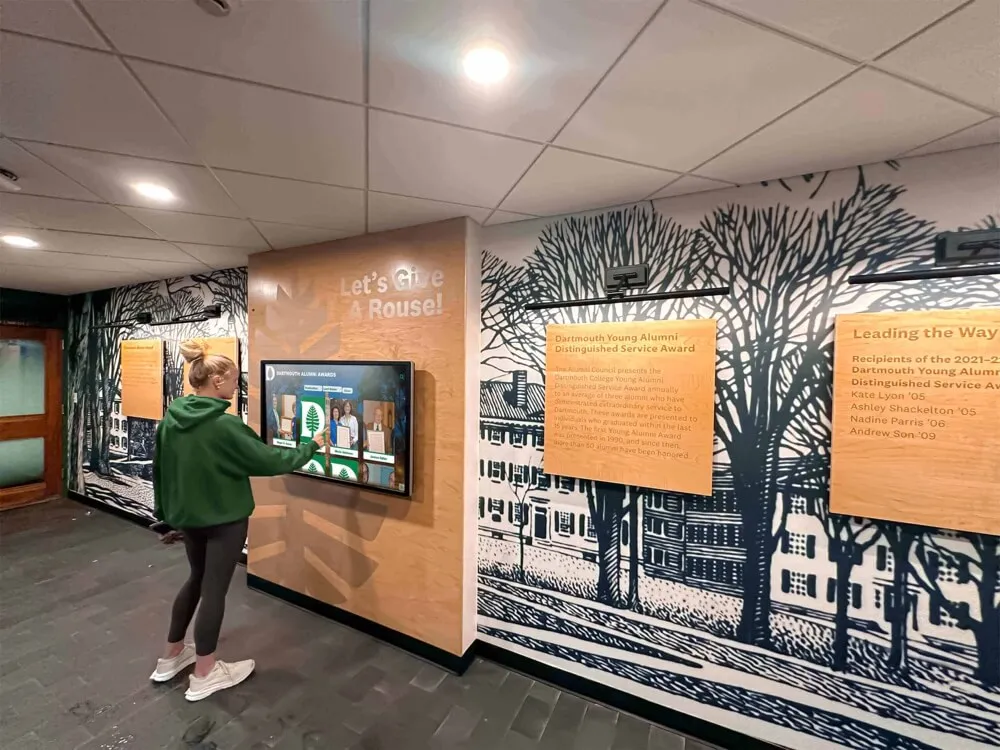
Modern recognition systems help mentoring organizations celebrate alumni while maintaining connections across generations
Understanding the Big Brother Big Sister Alumni Landscape
Before developing recognition and engagement strategies, understanding the diverse BBBS alumni ecosystem helps agencies design programs that resonate with different stakeholder groups.
Who Are BBBS Alumni?
The BBBS alumni network encompasses multiple distinct populations, each with unique perspectives and engagement opportunities:
Former “Littles” (Mentees)
Individuals who participated as youth in BBBS programs represent the primary alumni population. These former mentees include adults who were matched in traditional community-based programs, participants in school-based mentoring initiatives, former mentees from workplace mentoring programs, youth who completed BBBS programs successfully, and even those whose matches ended prematurely but who still gained value from the experience.
According to research compiled by BBBS, among former Littles surveyed, 77% said they are doing better in school because of their Big, 65% agreed their Big helped them reach a higher level of education than they thought possible, 52% agreed their Big kept them from dropping out of high school, 90% said their relationship with their Big helped them make better choices throughout their childhood, and 86% said it helped them make better choices throughout their adult life.
Former “Bigs” (Volunteer Mentors)
Adult volunteers who served as mentors constitute another critical alumni segment including those who completed multi-year mentoring relationships, volunteers who participated in shorter matches, former Bigs who now serve in leadership or advisory roles, volunteers who have mentored multiple youth over time, and career mentors who maintained relationships with Littles into adulthood.
Many former volunteers across the 65,000+ mentor network maintain strong emotional connections to their mentees and to the BBBS mission, making them valuable ambassadors, donors, and future board members when properly engaged.
Alumni Families
Parents and guardians of former Littles often develop strong connections to local BBBS agencies including families who witnessed transformative impacts on their children, parents who became agency volunteers or supporters, family members who referred other youth to programs, and multi-generational families with multiple children served.
These family alumni represent powerful testimonials to program quality and effectiveness while often remaining willing to support agencies long after their children age out of programs.
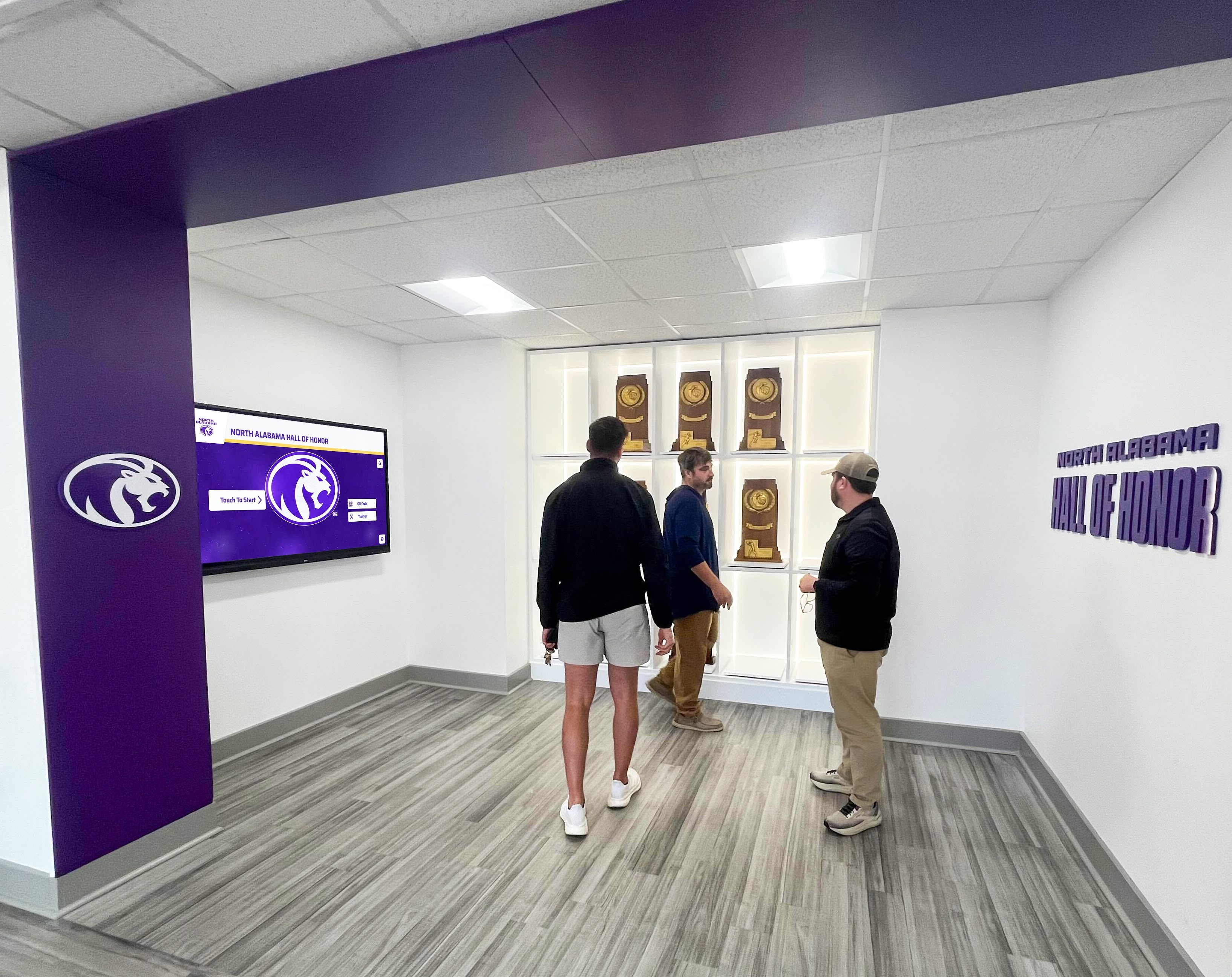
Recognition spaces create opportunities for community members to discover mentoring program impact and inspiring success stories
The Value of Systematic Alumni Engagement
Intentional alumni programs deliver multiple benefits for BBBS agencies while honoring the individuals whose stories demonstrate program effectiveness.
Mission Advancement Through Alumni Stories
Alumni represent the most powerful validation of BBBS effectiveness. Their stories demonstrate program impact in ways statistics alone cannot, provide authentic testimonials for fundraising and recruitment, inspire current matches by showing long-term possibilities, validate volunteer investments by showing lasting change, and create emotional connections with stakeholders considering support.
When BBBS agencies systematically collect and share alumni stories, they transform abstract program outcomes into concrete examples of changed lives that resonate with donors, volunteers, and community partners.
Alumni as Ambassadors and Advocates
Engaged alumni become powerful agency assets including sharing personal stories at fundraising events, recruiting new volunteers from their networks, serving on advisory boards or agency leadership, mentoring current participants or new matches, advocating for mentoring in professional and community contexts, and representing BBBS in media opportunities and public speaking.
These ambassador roles position alumni as living proof of program value while extending agency capacity through passionate volunteers who understand BBBS from personal experience.
Financial Support and Sustainability
Alumni represent potential long-term donors who understand program value viscerally. Former Littles who achieved professional success often desire to give back to programs that shaped their trajectories, while former volunteer Bigs frequently maintain financial support beyond their active mentoring years. Alumni may establish legacy giving or endowments, introduce BBBS to corporate giving programs at their employers, and organize peer fundraising campaigns among alumni networks.
The return on investment for mentoring demonstrates over $18 in social return for every $1 invested—creating powerful fundraising narratives when agencies can point to specific alumni whose success validates this impact.
Recruitment Pipeline Development
Alumni engagement creates natural recruitment pathways. Former Littles who benefited from mentoring often desire to become Bigs themselves when they reach adulthood, children of former participants may enroll as Littles, family members and friends of alumni represent warm recruitment prospects, and alumni professional networks provide access to quality volunteer candidates.
These organic recruitment channels typically produce highly committed volunteers who understand program value from personal or family experience.
Developing Comprehensive BBBS Alumni Recognition Programs
Systematic recognition honors the individuals whose stories embody BBBS mission while creating touchpoints that maintain alumni connection and engagement.
Recognition Program Foundation
Defining Recognition Objectives
Before implementing specific tactics, agencies should clarify what they hope to accomplish through alumni recognition:
Mission-Centered Goals
Recognition programs should advance specific objectives including celebrating life-changing mentoring relationships at the heart of BBBS mission, demonstrating tangible impact to current and prospective stakeholders, honoring volunteers who dedicated time and energy to youth, maintaining alumni connections facilitating ongoing engagement, and creating visible community awareness of mentoring program success.
Clear objective definition enables design decisions ensuring recognition initiatives support agency priorities when resource constraints require prioritization.
Stakeholder Engagement Goals
Recognition serves multiple audiences simultaneously. For alumni themselves, it validates their experiences and honors their achievements. For current participants, it demonstrates long-term program value and inspires continued engagement. For prospective volunteers and families, it provides concrete evidence of program effectiveness. For donors and community partners, it justifies continued investment in mentoring.
Effective recognition strategies address multiple stakeholder needs concurrently while maintaining authentic focus on celebrating the individuals being honored.
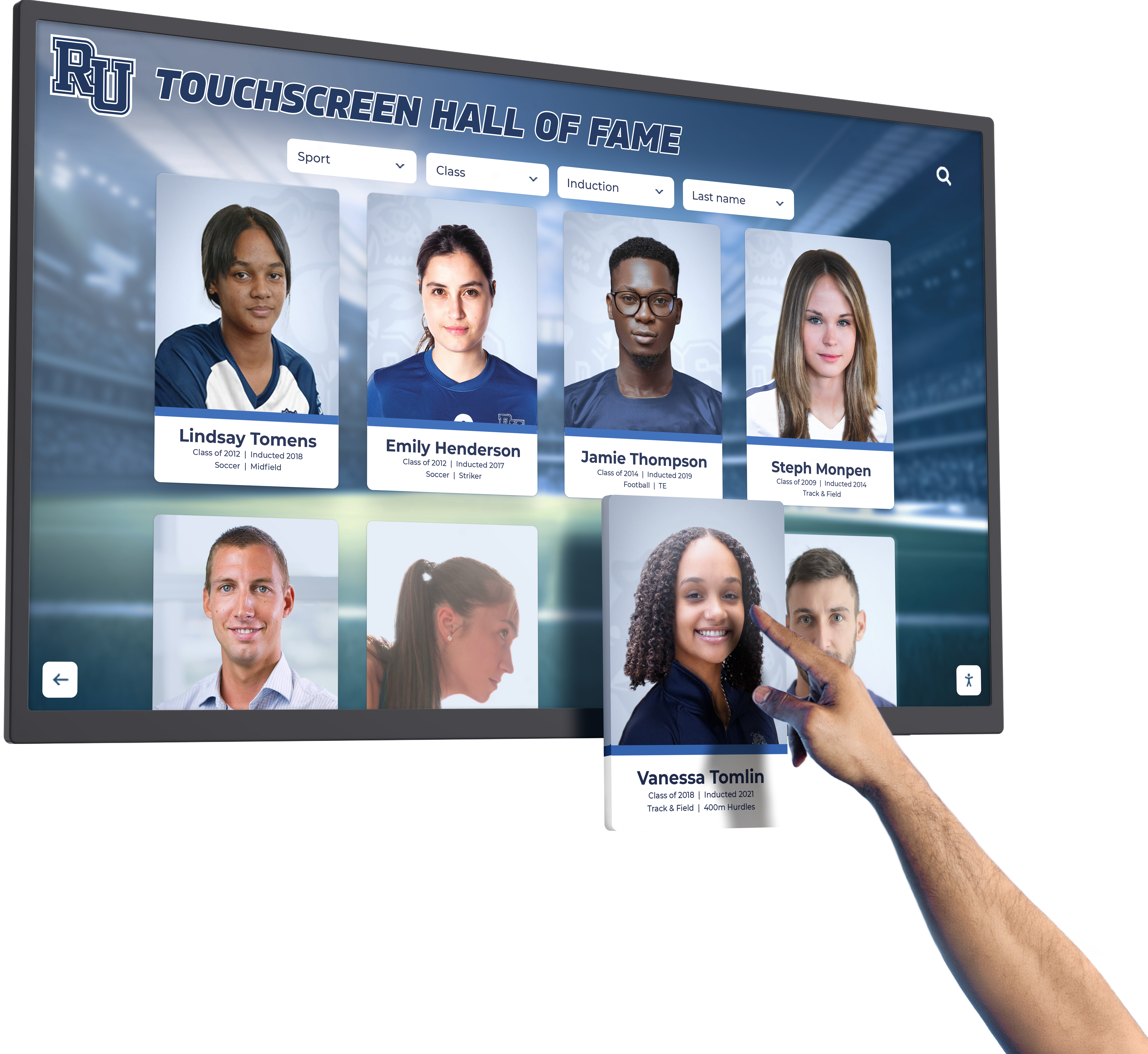
Interactive systems enable exploring individual alumni stories and achievements in engaging, discoverable formats
Multi-Tiered Recognition Structures
Creating recognition levels ensures appropriate acknowledgment at different scales while maintaining meaning and sustainability.
Annual Recognition Events
Formal annual celebrations provide heightened alumni acknowledgment through end-of-year alumni appreciation events, outstanding match recognition in multiple categories, distinguished alumni awards honoring notable achievements, milestone recognition for matches celebrating anniversaries, and reunion gatherings connecting alumni across generations.
Many BBBS agencies designate National Mentoring Month (January) as a focal point for alumni recognition and celebration, leveraging national momentum to highlight local success stories.
Milestone Recognition Programs
Systematic acknowledgment of significant occasions maintains ongoing alumni connection including match anniversary recognition at 1, 5, 10+ year milestones, graduation recognition when Littles complete high school or college, professional achievement acknowledgment when alumni reach career milestones, match closure celebrations honoring relationships when formal mentoring ends, and life event recognition for weddings, births, or other significant moments.
These touchpoints demonstrate that agencies value ongoing relationships beyond formal program participation periods.
Permanent Recognition Displays
Lasting acknowledgment creates enduring visibility through physical halls of fame in agency offices or community locations, donor recognition walls acknowledging alumni financial support, volunteer appreciation displays celebrating Big contributions, and digital recognition platforms providing unlimited capacity for comprehensive celebration.
Solutions like Rocket Alumni Solutions enable BBBS agencies to create sophisticated digital recognition systems showcasing unlimited alumni profiles with photos and stories, searchable databases enabling visitors to find specific matches, multimedia integration including videos and testimonials, remote updates ensuring recognition remains current, and web-based platforms extending access beyond physical agency locations.
Learn more about creating comprehensive community recognition programs that celebrate diverse contributions across mentoring organizations.
Alumni Story Collection and Preservation
Systematic documentation ensures compelling stories receive proper preservation and visibility.
Story Gathering Strategies
Direct Outreach Methods
Agencies can collect alumni narratives through annual alumni surveys requesting updates, scheduled follow-up interviews at key intervals, social media engagement encouraging story sharing, alumni gatherings with structured sharing opportunities, and direct requests when specific story needs arise.
Establishing predictable rhythms for alumni communication increases response rates while demonstrating ongoing agency interest in alumni journeys.
Story Content Components
Compelling alumni narratives include background context about life before BBBS, description of mentoring relationship and key experiences, specific ways the match influenced choices and outcomes, current life circumstances and achievements, reflections on lasting impact and meaning, and gratitude acknowledgments for mentors or agency staff.
These comprehensive profiles create engaging recognition while providing powerful testimonials for agency marketing and development efforts.
Media Documentation Standards
Professional presentation honors alumni appropriately through high-resolution photography suitable for displays and publications, professionally produced video testimonials when possible, written content edited for clarity while preserving authentic voice, appropriate release forms protecting privacy rights, and consistent formatting creating cohesive recognition aesthetics.
Quality documentation ensures alumni receive recognition reflecting the significance of their achievements and experiences.
Explore systematic approaches in digital storytelling for programs adaptable to mentoring organization contexts.
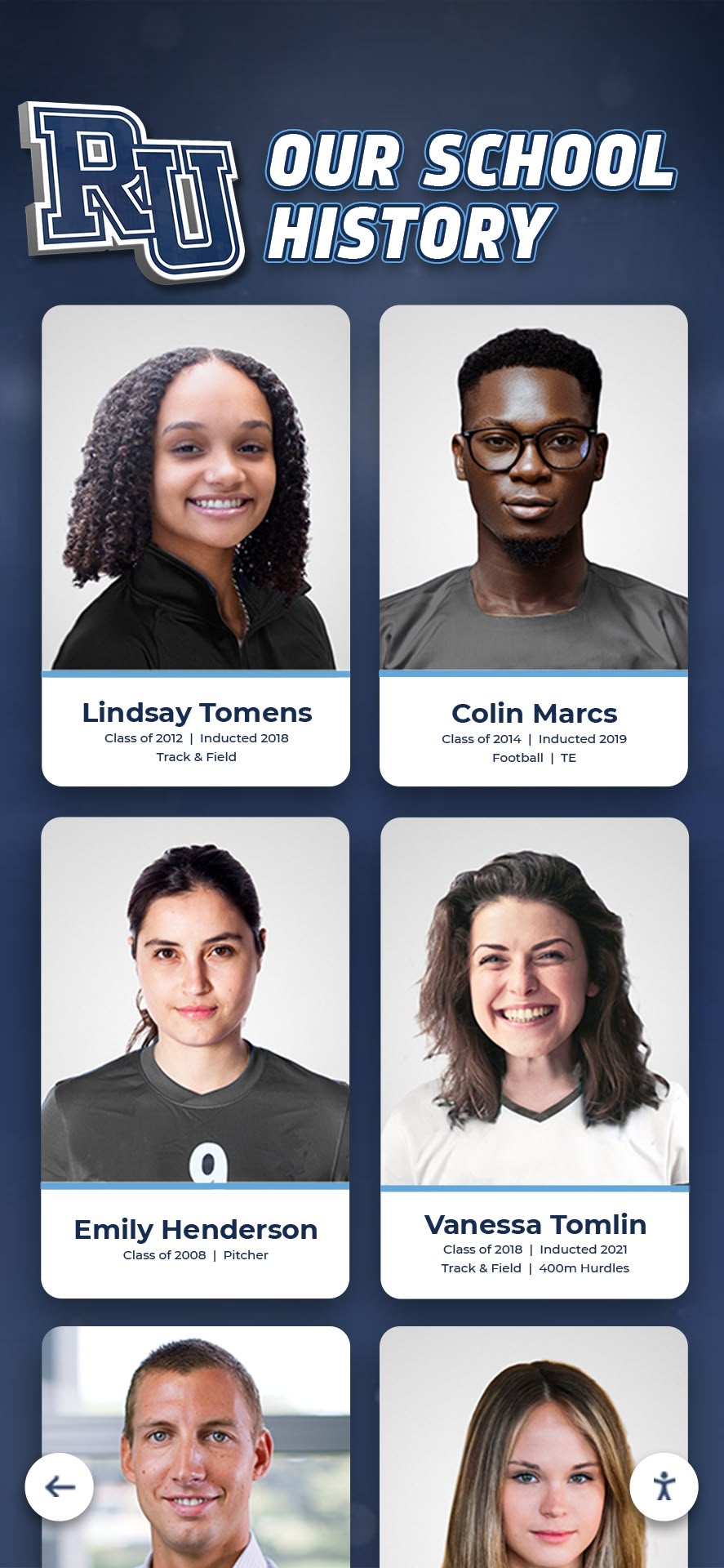
Comprehensive profile systems preserve complete alumni legacies across generations and achievement categories
Tracking Long-Term Alumni Outcomes
Understanding the lasting impact of mentoring relationships requires systematic outcome tracking that extends years or decades beyond program participation.
Alumni Outcome Measurement Frameworks
Educational Outcome Tracking
Educational achievement represents one of the most measurable indicators of mentoring impact including high school graduation rates among former Littles, college enrollment and completion statistics, advanced degree attainment over time, academic performance improvements, and educational aspirations realized.
The 2025 BBBS longitudinal research demonstrates greater enrollment in higher education among mentored youth—validating systematic tracking of these outcomes.
Career and Economic Outcomes
Professional success indicators reveal mentoring’s economic impact through employment rates and career stability, income levels and earning trajectories, career advancement patterns over time, professional credential and certification attainment, and entrepreneurship and business ownership.
Research shows increased salaries among BBBS alumni compared to similar populations without mentoring relationships, making these outcomes valuable to document.
Social and Behavioral Outcomes
Beyond educational and economic measures, quality of life indicators matter including civic engagement and community involvement, relationship quality and family stability, mental health and wellbeing, avoidance of negative behaviors or justice involvement, and leadership roles in community or professional contexts.
Studies demonstrate reduced dependency on social services and improved behavioral outcomes among BBBS participants—outcomes worth tracking to demonstrate comprehensive program value.
Mentoring Continuation
Many alumni perpetuate mentoring relationships by becoming volunteer Bigs themselves, mentoring in other formal or informal capacities, involving their own children in BBBS programs, or supporting mentoring organizations financially or through service.
These intergenerational patterns demonstrate mentoring’s cultural impact beyond individual matches.
Data Collection and Privacy Considerations
Ethical Alumni Tracking
Outcome measurement must balance program evaluation needs with respect for alumni autonomy and privacy:
Privacy Protection Principles
Agencies should obtain explicit consent for long-term follow-up, offer clear opt-out mechanisms at any time, protect personally identifiable information rigorously, aggregate data for reporting rather than identifying individuals, and communicate clearly how information will be used.
BBBS agencies operating under various state privacy regulations must ensure compliance while collecting outcome data.
Realistic Tracking Expectations
Long-term tracking faces practical challenges including contact information changing as youth become adults, limited agency resources for systematic follow-up, varying alumni interest in maintaining agency connection, and decades-long timelines required to measure ultimate outcomes.
Agencies should design tracking systems matching available resources while prioritizing key outcomes most critical to demonstrating program value.
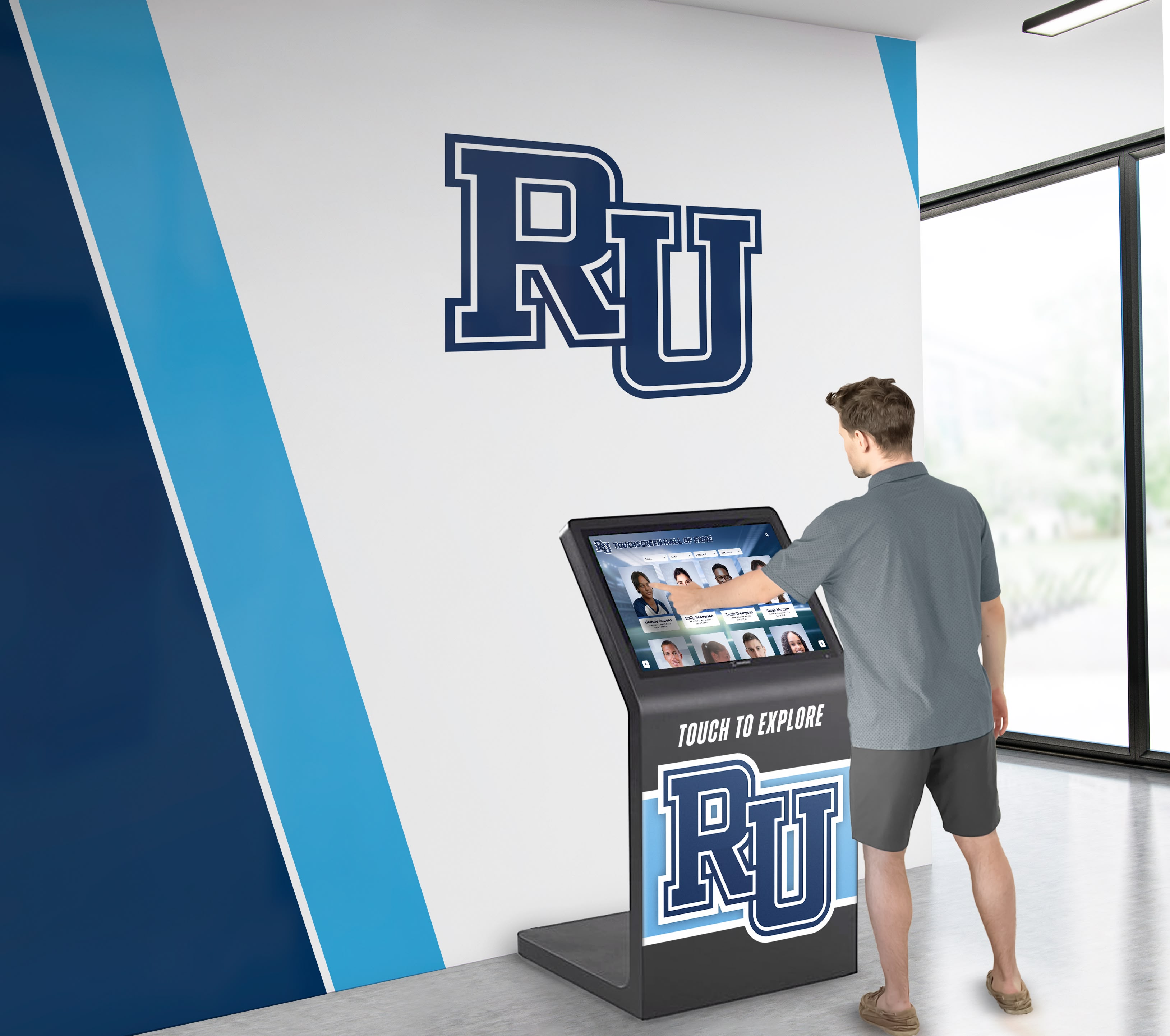
Strategic placement of recognition displays in high-traffic community spaces ensures visibility and accessibility
Building Engaged BBBS Alumni Networks
Beyond recognition and outcome tracking, active alumni networks create ongoing connection and mutual support among former participants.
Alumni Network Infrastructure
Organizational Structures
Formal structures support sustainable engagement including designated alumni relations staff or volunteers, alumni advisory councils providing input on programs, geographic chapters connecting alumni in specific regions, affinity groups organized around shared characteristics or interests, and leadership pathways for alumni wanting deeper involvement.
Many successful BBBS agencies engage alumni as youth board members, strengthening governance while providing leadership development opportunities.
Communication Channels
Regular touchpoints maintain connection through quarterly alumni newsletters, dedicated social media groups or pages, annual alumni surveys and updates, reunion events and gatherings, and personalized outreach for milestones and achievements.
Consistent communication demonstrates ongoing agency interest in alumni lives beyond their value as fundraising prospects or testimonial sources.
Alumni Programming and Engagement
Career and Professional Development
Alumni networks can provide mutual support through mentoring connections between established and emerging professionals, networking events connecting alumni across industries, career panels featuring alumni success stories, job posting boards and employment opportunities, and professional skill-building workshops.
These programs deliver tangible value to alumni while strengthening their connection to BBBS and to each other.
Social and Community Events
Relationship-building activities maintain alumni bonds including reunion events for specific cohorts or time periods, family-friendly gatherings including alumni children, volunteer opportunities for collective community service, celebration events during National Mentoring Month, and informal social gatherings in various geographic areas.
The strongest alumni networks combine mission-focused activities with social connection that honors the relationship-centered nature of mentoring.
Alumni Giving and Volunteer Programs
Structured engagement channels facilitate alumni support including graduated giving programs scaled to career stages, monthly sustainer programs for consistent support, peer-to-peer fundraising campaigns, volunteer opportunities matched to alumni skills and interests, and speaking or storytelling roles at agency events.
Providing multiple engagement pathways ensures alumni with varying resources can contribute meaningfully.
Explore comprehensive engagement strategies in alumni gathering area design applicable to mentoring organization contexts.
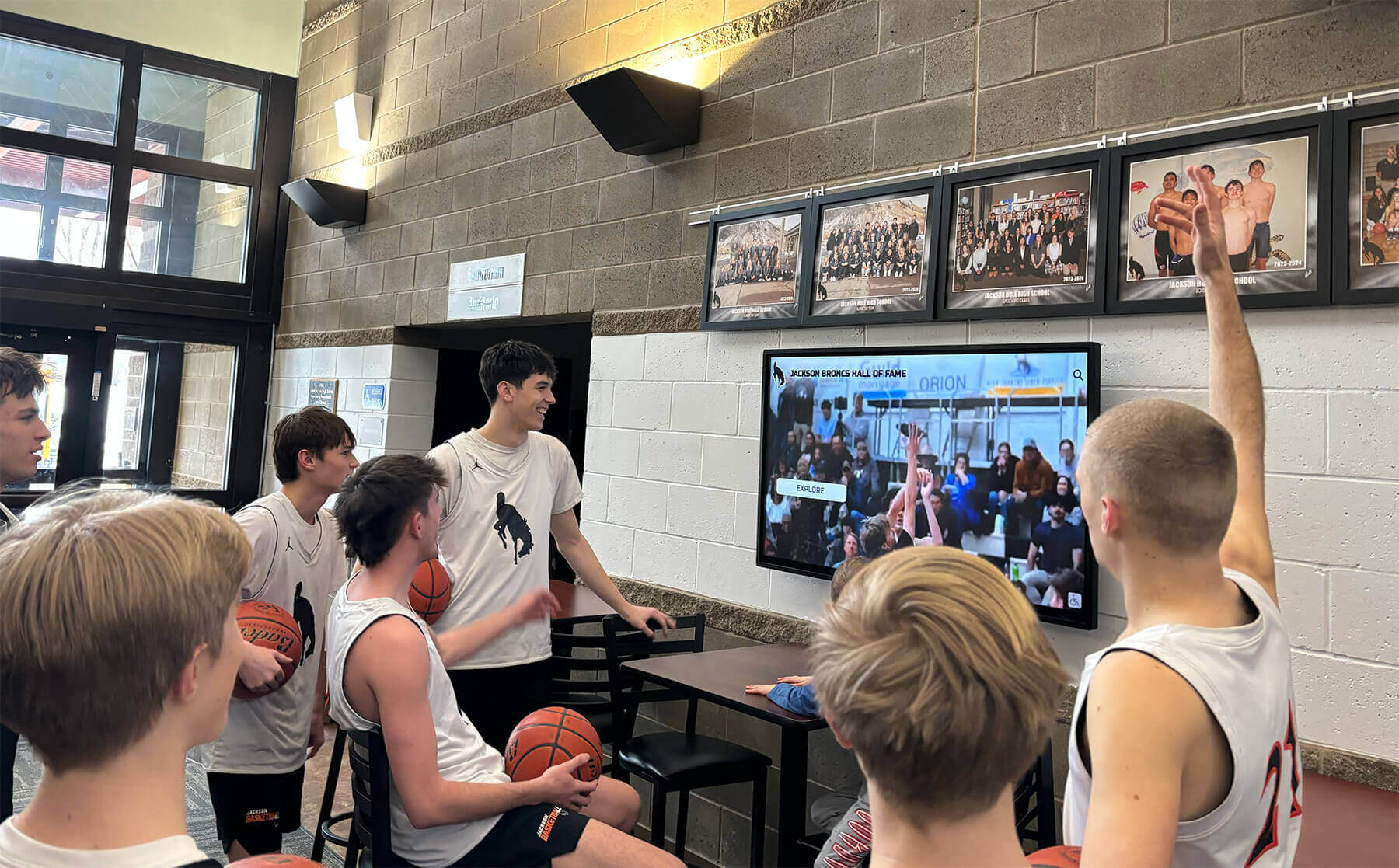
Recognition displays create natural gathering points where alumni reconnect and share experiences
Leveraging Technology for BBBS Alumni Engagement
Modern digital platforms dramatically expand what’s possible in alumni recognition, tracking, and engagement while reducing administrative burden.
Digital Alumni Recognition Platforms
Traditional physical displays impose strict limitations on how many alumni organizations can recognize. Digital platforms eliminate this constraint completely.
Unlimited Recognition Capacity
Digital recognition systems like Rocket Alumni Solutions enable agencies to showcase unlimited former Littles and volunteer Bigs across all programs and decades, comprehensive documentation of complete organizational history rather than edited highlights, equal recognition opportunity for all match types regardless of physical display space, and continuous addition of new alumni without removing historical recognition.
This unlimited capacity fundamentally changes recognition philosophy—agencies can adopt inclusive “celebrate everyone” approaches rather than exclusive “limited space forces difficult choices” models.
Enhanced Storytelling Capabilities
Beyond solving capacity constraints, digital platforms enable recognition experiences qualitatively superior to traditional approaches through high-resolution photo galleries showing matches throughout their journeys, video testimonials capturing personal stories compellingly, complete profile information and achievement documentation, searchable databases enabling instant discovery of specific individuals, social sharing capabilities allowing alumni to celebrate their recognition, mobile-responsive web access extending engagement beyond physical displays, and regular content updates keeping recognition current without physical modifications.
These multimedia capabilities transform simple name listings into rich, engaging stories that honor mentoring relationships appropriately.
Analytics and Engagement Insights
Modern platforms provide data revealing recognition effectiveness including display interaction frequency showing usage patterns, most-viewed profiles identifying compelling stories, search patterns revealing how visitors navigate content, web platform traffic sources understanding discovery paths, and social sharing frequency demonstrating organic promotion.
These metrics help agencies refine recognition strategies while demonstrating stakeholder interest in alumni content.
Learn about advanced recognition systems in interactive touchscreen displays for organizations with principles applicable to mentoring agencies.
Alumni Database and Relationship Management
Integrated Data Systems
Effective alumni engagement requires comprehensive information management through centralized databases tracking all alumni contact information, participation history showing program involvement details, engagement tracking documenting interactions over time, outcome data as available within privacy constraints, and communication preferences ensuring appropriate outreach.
Many constituent relationship management (CRM) systems designed for nonprofits include alumni relationship features that integrate with donor management and volunteer coordination functions.
Data Quality and Maintenance
Database value depends on information accuracy through regular contact information updates and verification, systematic appending of new information as alumni progress, removal of outdated or incorrect information, privacy compliance ensuring appropriate data handling, and consistent protocols for information collection and entry.
Designating specific staff or volunteers responsible for database maintenance prevents deterioration that undermines long-term tracking capabilities.
Digital Communication Channels
Multi-Channel Engagement
Reaching diverse alumni populations requires varied communication approaches including email newsletters providing comprehensive updates, social media engagement on platforms alumni use, dedicated alumni websites or portals, mobile apps facilitating convenient access, and text messaging for time-sensitive communications.
Allowing alumni to set communication preferences increases engagement by respecting individual channel preferences.
Personalized Communication
Technology enables customization at scale through segmented messaging addressing specific alumni cohorts, automated milestone recognition triggered by database dates, behavioral triggers responding to alumni engagement patterns, and personalized content reflecting individual alumni interests and histories.
This personalization demonstrates that agencies view alumni as individuals rather than undifferentiated marketing audiences.

Intuitive interfaces enable exploring individual profiles with comprehensive information and multimedia content
Funding and Sustaining BBBS Alumni Programs
Comprehensive alumni engagement requires dedicated resources and creative funding strategies ensuring program sustainability.
Resource Requirements
Staffing Considerations
Effective alumni relations requires human investment including dedicated alumni relations staff for larger agencies, shared responsibilities across development and program teams in smaller organizations, volunteer alumni coordinators assisting with peer outreach, intern or fellowship positions providing capacity at lower cost, and consultant support for specialized initiatives.
Agencies should allocate staffing resources commensurate with the size and engagement potential of their alumni networks.
Technology Investments
Digital platforms require budget consideration including alumni database or CRM systems, digital recognition display hardware and software, website or portal development and hosting, communication platforms for email and other outreach, and integration costs connecting various systems.
Many technology vendors offer nonprofit pricing making sophisticated tools more accessible to community organizations.
Programming and Event Costs
Alumni engagement activities require operational support including venue and catering costs for gatherings, marketing and promotional materials, recognition awards or tokens of appreciation, professional development programming expenses, and communication design and production.
Creative agencies often offset these costs through sponsorships or by leveraging free or low-cost community spaces.
Funding Strategies
Development Integration
Alumni programs should align with broader fundraising including alumni giving campaigns as revenue sources, alumni testimonials supporting grant applications, outcome data demonstrating program effectiveness for funders, and alumni events doubling as cultivation or stewardship opportunities.
When positioned strategically, alumni programs generate resources supporting their own operation while advancing agency mission.
Sponsorship and Partnership
External support extends program capacity through corporate sponsorship of alumni events or initiatives, foundation grants supporting alumni relations infrastructure, in-kind donations of services or spaces, university or institutional partnerships providing resources, and volunteer professional services from alumni and others.
BBBS agencies can often leverage their community credibility to secure support specifically designated for alumni engagement.
Contributed Income Models
Some agencies generate support through alumni-focused activities including modest event registration fees covering costs, merchandise sales featuring agency branding, alumni directory or yearbook sponsorships, legacy giving programs funded by planned gifts, and endowments specifically supporting alumni relations.
These approaches work best when alumni receive clear value justifying any financial requests.
Explore funding approaches in capital campaign donor recognition strategies adaptable to alumni engagement contexts.
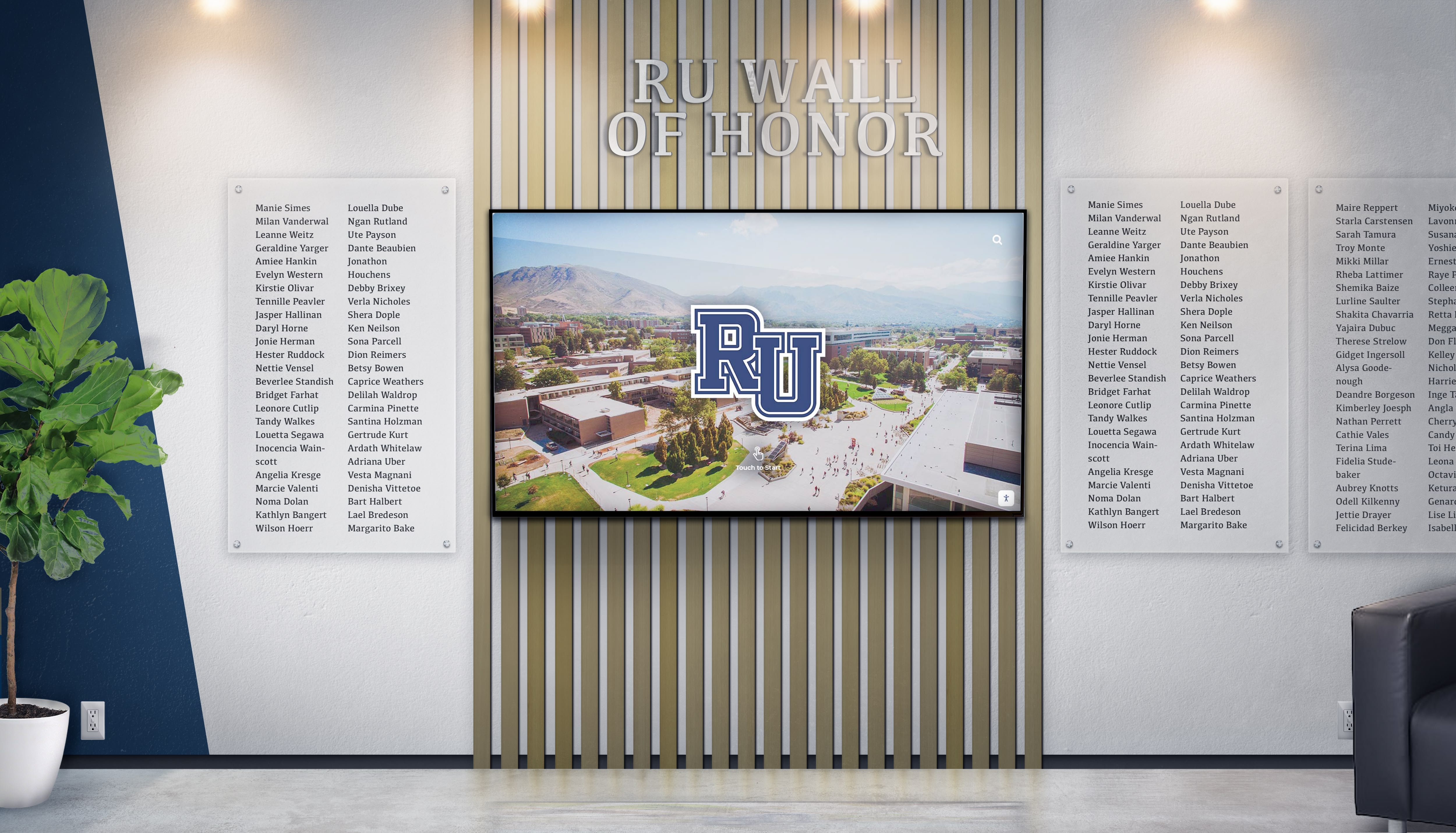
Integrated recognition systems combine digital displays with traditional elements for comprehensive celebration
Special Considerations for Different BBBS Contexts
Alumni program approaches should adapt to specific agency situations, sizes, and contexts while maintaining core relationship principles.
Local Agency Alumni Programs
Community-based BBBS agencies face unique opportunities and constraints including intimate knowledge of local alumni and their circumstances, limited staff capacity requiring efficient strategies, strong community connections facilitating in-person engagement, geographic concentration enabling local events and gatherings, and multi-decade histories potentially including large alumni populations.
Small to medium agencies benefit from starting with manageable initiatives focused on current alumni before expanding to historical populations.
BBBS Regional or State Organization Alumni Engagement
Regional entities coordinate across multiple local agencies through standardized frameworks local agencies can adapt, centralized technology platforms reducing individual agency costs, statewide events connecting alumni across communities, coordinated communication strategies ensuring consistency, and advocacy initiatives leveraging alumni stories for policy impact.
Regional coordination creates economies of scale while allowing local customization matching community contexts.
Program-Specific Alumni Approaches
Different BBBS program models serve distinct populations warranting adapted engagement:
Community-Based Mentoring Alumni
Traditional one-to-one matches that often lasted multiple years create particularly strong relationships and alumni connections, making these former participants highly engaged when agencies maintain contact.
School-Based Mentoring Alumni
Shorter-term matches meeting during school hours may create less intensive relationships, though they still provide meaningful impact worth celebrating and tracking.
Mentoring Beyond High School or College Transition Programs
Specialized programs serving specific populations or developmental stages require recognition approaches reflecting their unique objectives and outcomes.
Agencies should design recognition and engagement strategies matching the characteristics of alumni from each program model rather than applying uniform approaches across diverse populations.
Culturally Responsive Alumni Engagement
BBBS serves increasingly diverse populations requiring culturally appropriate recognition including multilingual communication when serving non-English-speaking populations, culturally relevant celebration and recognition styles, acknowledgment of cultural values around publicity and recognition, family-centered approaches in communities with collectivist orientations, and awareness of historical factors affecting trust and engagement.
Agencies should involve alumni from diverse backgrounds in designing engagement strategies ensuring cultural appropriateness and relevance.
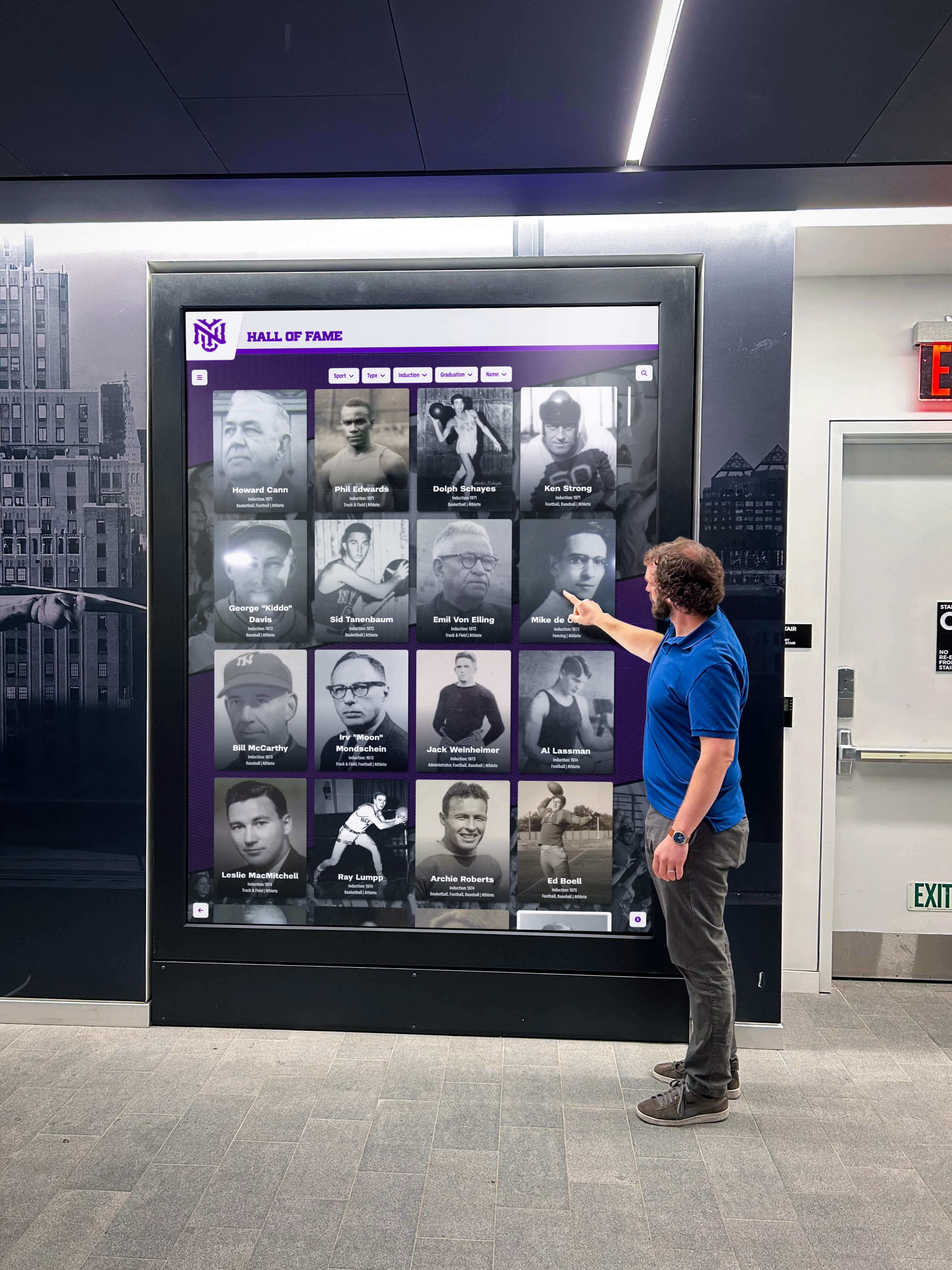
Accessible displays in welcoming spaces encourage exploration by alumni, families, and community visitors
Measuring BBBS Alumni Program Success
Demonstrating program value requires clear metrics showing impact on mission advancement, relationship maintenance, and organizational goals.
Quantitative Success Indicators
Alumni Engagement Metrics
Measurable engagement indicators include alumni contact database size and growth rate, communication open and click-through rates, event attendance and participation levels, volunteer role acceptance rates, giving participation and retention rates, and web or display interaction analytics.
These metrics reveal whether alumni find programming valuable enough to maintain ongoing connection.
Outcome Documentation Metrics
Long-term impact measurement includes percentage of alumni with tracked outcomes, educational milestone achievement rates, career and economic indicators when available, mentoring continuation statistics, and satisfaction ratings with program experience.
Even partial outcome data demonstrates impact when agencies acknowledge tracking limitations openly.
Resource Development Metrics
Alumni program value appears in fundraising results including alumni donor acquisition and retention rates, average gift sizes and lifetime value, volunteer hour contributions from alumni, in-kind donation value from alumni networks, and recruitment conversion rates from alumni referrals.
These metrics justify continued investment in alumni relations by demonstrating tangible returns.
Qualitative Impact Assessment
Stakeholder Testimonials
Personal perspectives provide insights beyond quantitative metrics including alumni feedback on program value and experience, current participant responses to alumni interactions, staff observations about alumni engagement quality, board member perspectives on mission advancement, and external stakeholder reflections on organizational reputation.
This qualitative feedback reveals whether alumni programs achieve intended cultural and relational impacts.
Mission Alignment Assessment
Regular evaluation ensures alumni initiatives support core purposes through review of how recognition honors mentoring relationships authentically, assessment of whether engagement provides mutual value to alumni and agency, evaluation of how alumni programs advance mission compared to alternative uses of resources, and reflection on organizational values reflected in alumni treatment.
These qualitative assessments prevent alumni programs from becoming purely transactional fundraising tools disconnected from relationship values at the heart of mentoring.
Learn about comprehensive evaluation in measuring digital recognition success with applicable principles for mentoring programs.
Conclusion: Honoring Mentoring Relationships That Transform Lives
Big Brother Big Sister program alumni represent living proof of mentoring’s power to change life trajectories—individuals whose educational achievement, career success, and personal wellbeing reflect the caring relationships at the heart of BBBS mission. When agencies systematically recognize, engage, and celebrate these alumni through comprehensive programs that honor their experiences, maintain ongoing connection, and document long-term impact, they create multiple benefits simultaneously: validating the volunteers who dedicated time and energy to youth, demonstrating program effectiveness to stakeholders considering support, inspiring current participants by showing long-term possibilities, and building engaged networks that advance mission for decades.
The strategies explored in this guide provide comprehensive frameworks for building alumni programs that honor diverse experiences while remaining sustainable, meaningful, and aligned with mentoring values. From traditional reunion events to innovative digital recognition platforms like Rocket Alumni Solutions, these approaches transform alumni acknowledgment from occasional outreach to systematic celebration woven throughout organizational culture.
Transform Your Mentoring Program Recognition
Discover how modern digital recognition solutions can help you celebrate every alumni achievement, maintain lifelong connections, and demonstrate the transformative impact of mentoring relationships.
Explore Recognition SolutionsRecent research demonstrates unprecedented evidence of mentoring’s long-term impact—greater educational attainment, increased earnings, improved behavioral outcomes, and reduced social service dependency extending decades beyond program participation. BBBS agencies that systematically track, document, and share these outcomes through engaged alumni networks amplify their ability to secure resources, recruit volunteers, and serve more youth.
Start wherever your agency stands today—whether launching first alumni outreach efforts or expanding existing engagement infrastructure—then systematically build programs your alumni deserve. Every former Little who receives recognition for their achievements and every volunteer Big whose service is honored develops stronger connection to BBBS mission while becoming an ambassador for mentoring’s life-changing power.
Your alumni community deserves recognition systems celebrating the relationships that defined their journeys and the volunteers who believed in their potential. With thoughtful planning, appropriate technology investments, and sustained commitment, you can create alumni programs becoming treasured traditions that preserve organizational legacy while inspiring next generations of mentors and youth.
Ready to begin? Explore how Rocket Alumni Solutions can help you create comprehensive alumni recognition systems that honor mentoring relationships, demonstrate program impact, and maintain the lifelong connections essential to advancing your mission and serving your community.




































